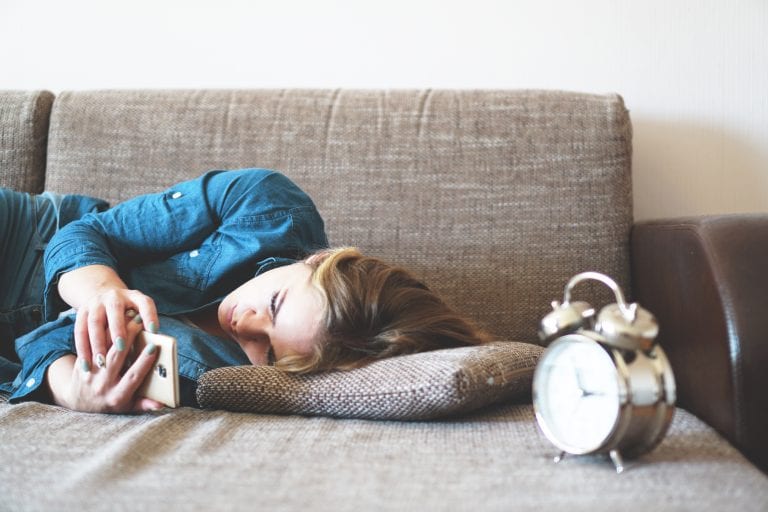More Time on Cell Phones = Less Sleep For Students

As of 2012, the percentage of teenagers that own smartphones started to increase rapidly. At the same time, the number of hours of sleep they get each night has dropped dramatically. 40% of teens say that they get less than seven hours of sleep on most school nights. Sleep-deprived students can appear as though they have anxiety or clinical depression and can also have reduced academic performance. Lack of sleep among students is now a public health concern, and according to this study , cell phones and other portable computing devices are a major reason why.
Computer screens, including cell phones, emit a short wavelength light called “Blue light”. Blue light exposure has been associated with changes to circadian rhythms that affect sleep cycles. This causes lowered production of the hormone melatonin and disrupted REM (or deep) sleep. Certain newer cellphones have a “sleep mode” that changes the tone of the screen colors at a certain time, so that the blue light is reduced but it is not eliminated with this feature.
Most teenagers are actively engaged on social media or other types of entertainment while using their devices, which further keeps stimulation levels high when their minds are supposed to be winding down for the night.
These are the latest guidelines on the number of hours of sleep needed for students of various ages (from AASM )
- Children six to 12 years of age should sleep nine to 12 hours per 24 hours on a regular basis to promote optimal health.
- Teenagers 13 to 18 years of age should sleep eight to 10 hours per 24 hours on a regular basis to promote optimal health.
How about having a conversation with your kids about keeping electronic devices out of their bedrooms? To begin, here are a few questions to stimulate thought:
- How many hours of sleep do you think is optimal for you? Then, show them what the AASM recommends.
- What time do you think would be a good time to take all your personal devices out of the room? If they say they need their phone as an alarm clock, you might offer to get them a standard cheap alarm clock.
- Where might be a good spot in the house to deposit the devices?
Being proactive and having your kids participate in the solutions will help keep them engaged in the outcomes, and hopefully, lead to better rest – especially during those school nights.












